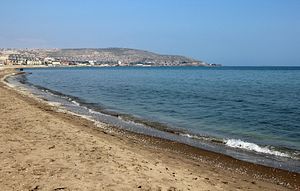The Russian Caspian Flotilla’s October cruise missile launches against targets about 1,400 km away in Syria represented an unexpected show of force on the Caspian Sea. Russia’s Syria operations highlight Russia’s historic strength in the Caspian region, while also exposing certain diplomatic weaknesses.
Militarily, the Caspian Sea has been a Russian lake since the reign of Peter the Great. The emergence of three new littoral states—Azerbaijan, Kazakhstan, and Turkmenistan—after the 1991 Soviet collapse complicated the region’s political and security landscape. The former Soviet republics established their own military presence on the Caspian and Iran bolstered its own forces on the inland sea. Proposals for a Trans-Caspian gas pipeline (TCP) from Azerbaijan to Turkmenistan threatened to disrupt Moscow’s territorial monopoly on routes for Europe-bound Central Asian hydrocarbons.
The Caspian Sea’s legal status remains ambiguous, a situation Russia exploits. Moscow treats the Caspian as a condominium – meaning the entire body of water is jointly owned by the five littoral states, not divided into separate territorial zones. Kazakhstan and Azerbaijan oppose this position. The distinction is critical in issues of energy exploitation and security. Outside military presence is effectively barred in Kazakhstan by the Collective Security Treaty Organization’s charter, and foreign troops are blocked from the other littoral states under an agreement pushed by Russia and Iran at the 2014 Astrakhan Summit. Meanwhile, festering conflicts in the South Caucasus make establishing Trans-Caspian energy routes risky. Moscow’s assertive October 7 cruise missile performance took place in the southern Caspian, not far from Azerbaijan’s coastline. This renders a pipeline across the sea ever more a pipe dream.
Russia’s recent display of military prowess and its dominant position in the Caspian Sea, however, do not leave Moscow completely free from pushback from the region’s smaller states. Even before the cruise missile strikes, the path taken by Syria-bound Russian aircraft suggest Azerbaijan is not granting overflight permission to Moscow. This could be the result of tensions between Baku’s Turkish ally and Russia over the latter’s military intervention in Syria.
The Russian cruise missile strikes came just two days after the conclusion of talks by Syrian opposition groups in Kazakhstan’s capital city Astana. Despite membership in Moscow-led regional organizations like the Eurasian Economic Union and CSTO, Kazakhstan positions itself as a pivot state, balancing its relations between Russia and the West. Astana previously hosted Syrian rebel leaders for intra-opposition negotiations in May. Kazakhstan also failed to adopt the Russian position on the Ukraine conflict, charting a neutral course. Ukraine’s president, Petro Poroshenko, met Kazakh leader Nursultan Nazarbayev on October 9.
Neither last week’s Astana summit nor the late spring gathering produced useful resolutions on the Syrian conflict. But Kazakhstan has made clear that it will not necessarily adopt Russia’s position in international disputes by default, regardless of its close economic and security alliances with Moscow.
In the Caspian Sea region, Russia operates from a historic position of strength. However, states like Kazakhstan and Azerbaijan continue to demonstrate political independence from Moscow parallel to Russia’s increasingly assertive behavior.
Evan Gottesman is a Lloyd C. Gardner Fellow at Rutgers University.

































